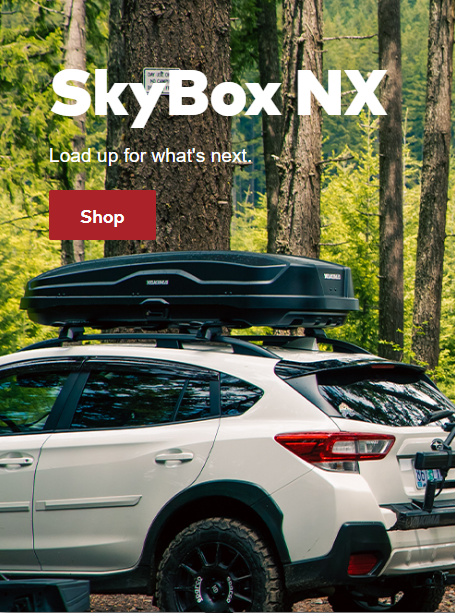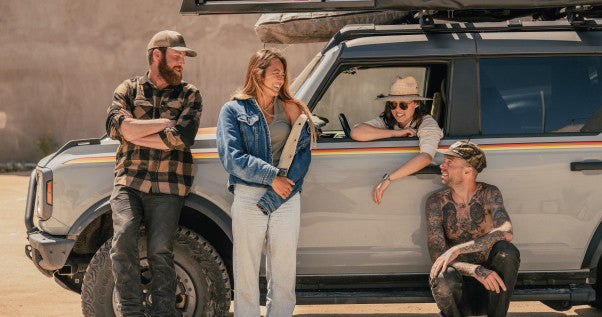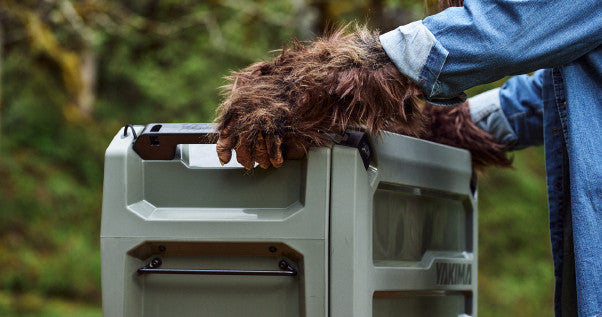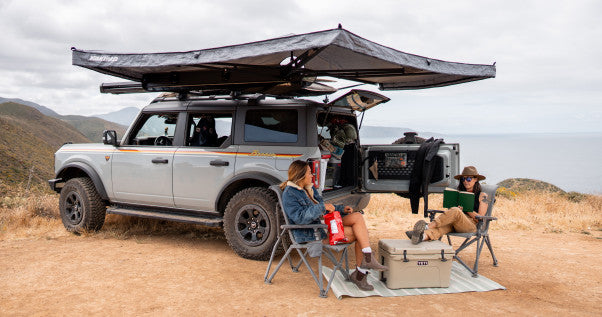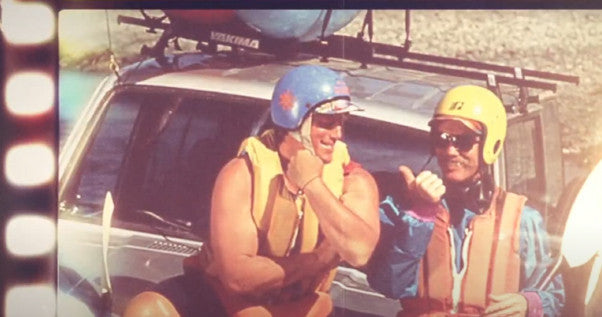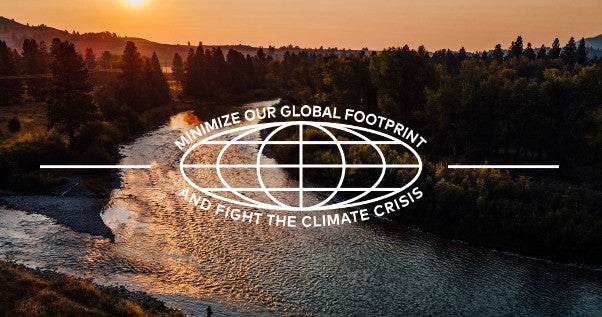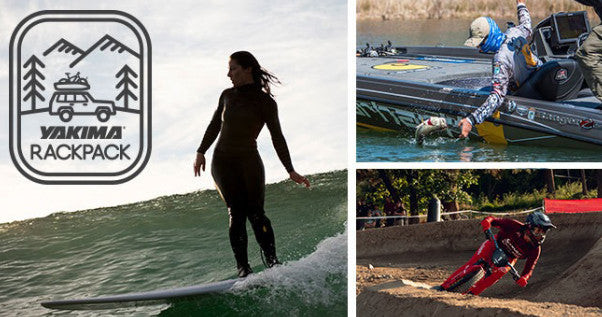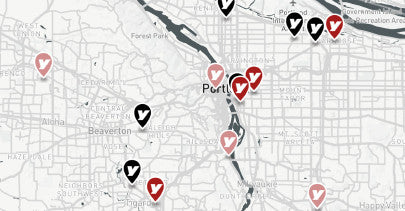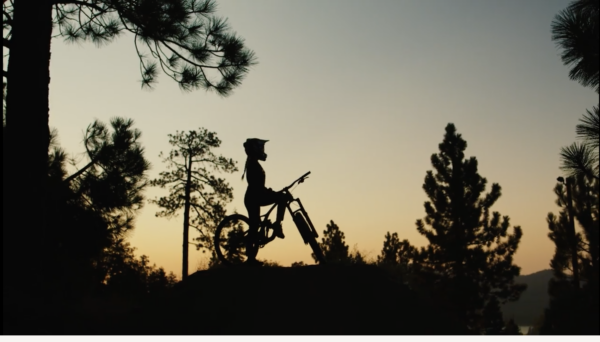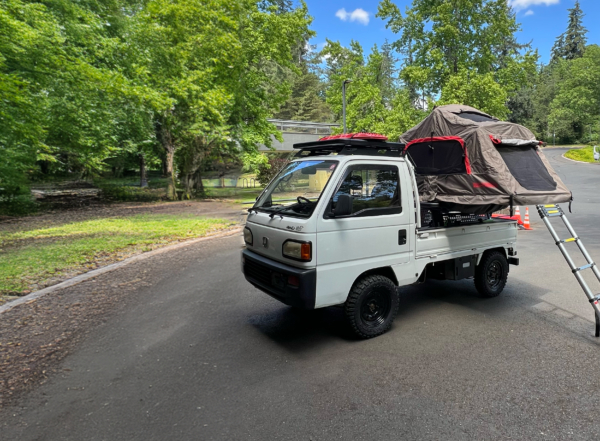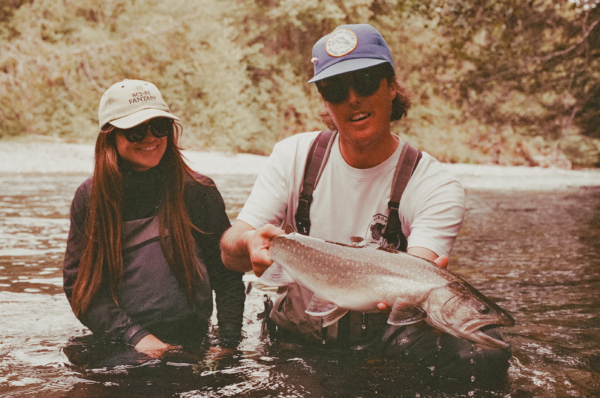Outdoor Afro helps to reconnect people with their “inner nature swagger.” We’re psyched to partner with them, and recently joined them on a trip to Olympic National Park to celebrate the 150th anniversary of the Buffalo Soldiers.
 Started as a blog by Rue Mapp in 2009, Outdoor Afro leverages social media and technology to create an adaptive, responsive network of networks that gets African Americans involved with nature. It may start with going on a hike. It may simply be looking at pictures from someone else’s hike on Instagram or Facebook. How you initially connect doesn’t matter, what does matter is shifting the visual representation of who gets outdoors. You can get involved as deeply as you want, any way that you want. No dues, no meetings, welcome to come and go as you please. And, as Mapp points out, Outdoor Afro is for all. “You don’t have to have an afro to be in Outdoor Afro,” say Mapp. “Tap into your inner afro and join in.”
Started as a blog by Rue Mapp in 2009, Outdoor Afro leverages social media and technology to create an adaptive, responsive network of networks that gets African Americans involved with nature. It may start with going on a hike. It may simply be looking at pictures from someone else’s hike on Instagram or Facebook. How you initially connect doesn’t matter, what does matter is shifting the visual representation of who gets outdoors. You can get involved as deeply as you want, any way that you want. No dues, no meetings, welcome to come and go as you please. And, as Mapp points out, Outdoor Afro is for all. “You don’t have to have an afro to be in Outdoor Afro,” say Mapp. “Tap into your inner afro and join in.”
Hiking, biking, skiing, camping, fishing, gardening, going to the park – Outdoor Afro uses Meetup.com to create regional groups and arrange outings. And while they train people to lead these events, these leaders aren’t necessarily people that would identify as outdoorsy. “These are local role models getting back in touch with their inner nature swagger – something they may not have known they even had – and sharing that with others,” says Mapp. “The trips help participants find their tribe, gain confidence. Then people start going out there on their own – that’s the kind of change we want to see.”
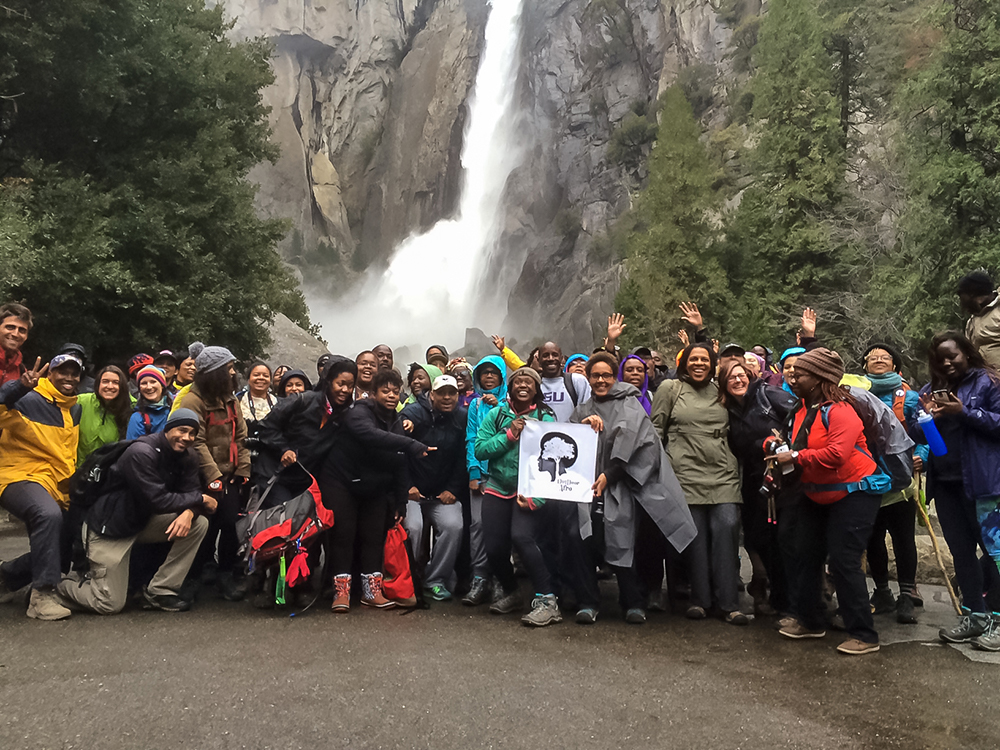
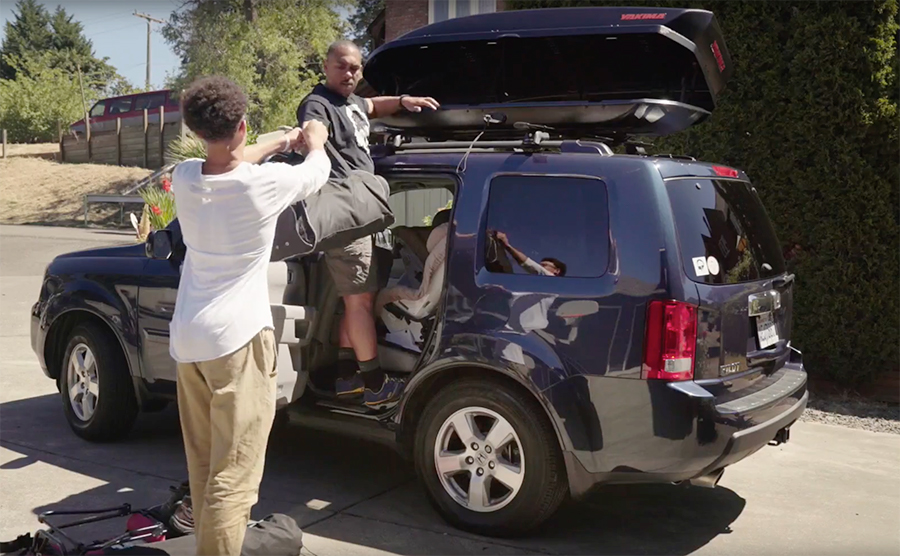 “There are a number of things that can stop someone from stepping into the outdoors,” says Mapp. “Gear-phobia – I don’t have or can’t afford the right equipment – and even if I could afford it, I wouldn’t know what to get. Or access realities. How do you get to a park miles from your home if Sunday bus service has been curtailed and you don’t have a car?” This is where brands can help. For example, Yakima helps Outdoor Afro expand carpool opportunities – helping to offset the access issue – by allowing them to carry gear and supplies on top of vehicles.
“There are a number of things that can stop someone from stepping into the outdoors,” says Mapp. “Gear-phobia – I don’t have or can’t afford the right equipment – and even if I could afford it, I wouldn’t know what to get. Or access realities. How do you get to a park miles from your home if Sunday bus service has been curtailed and you don’t have a car?” This is where brands can help. For example, Yakima helps Outdoor Afro expand carpool opportunities – helping to offset the access issue – by allowing them to carry gear and supplies on top of vehicles.
“Gear and equipment are important – shoes, packs, clothing, water bottles – because bad gear makes a bad experience. Good outerwear means there’s no such thing as bad weather. We work with brands to help people be prepared.”
The “inner nature swagger” has roots in African American culture. Harriet Tubman navigated the wilderness using moss on the trees as she led slaves to freedom via the Underground Railroad, and later became a scout for the Union Army. The Civil War also spawned the Buffalo Soldiers. If you know your history, you will know that after the war ended, the Buffalo Soldiers helped manage the lands that eventually became some of the west’s best-loved National Parks, including Yosemite.
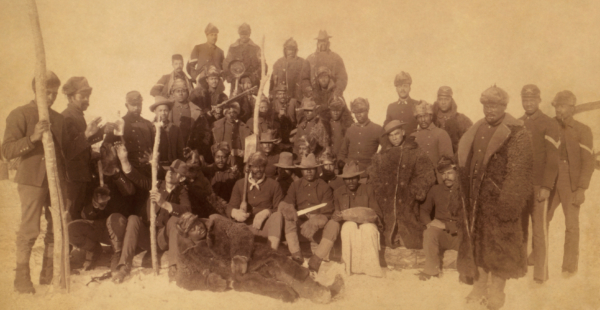
Mapp finds uncovering the history of a park or region energizing, calling it an “embedded invitation” to connect. And the Buffalo Soldiers? “This has been a very key narrative,” says Mapp. They were the first park rangers. That’s why we did our training in Yosemite.”
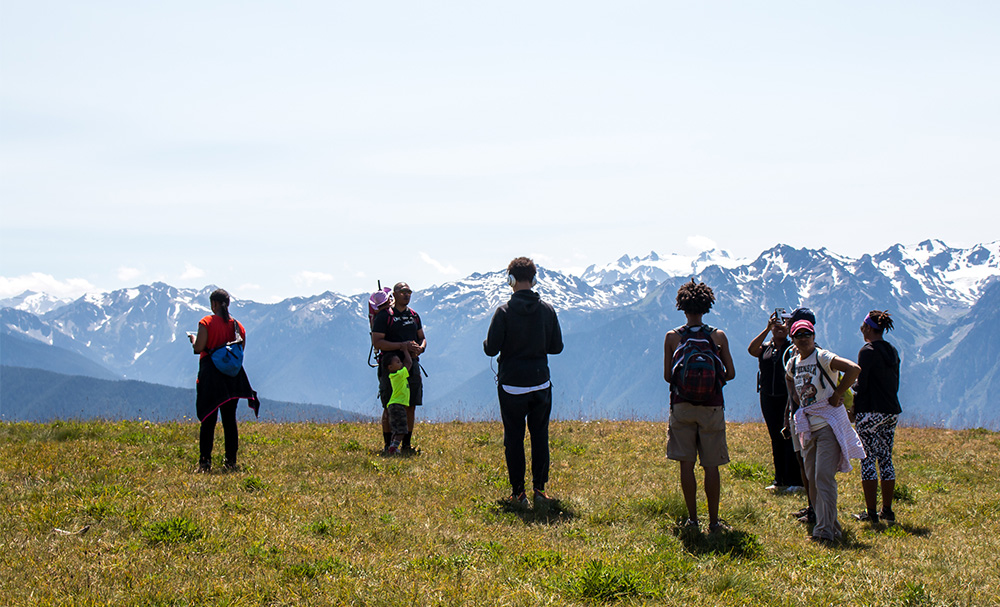
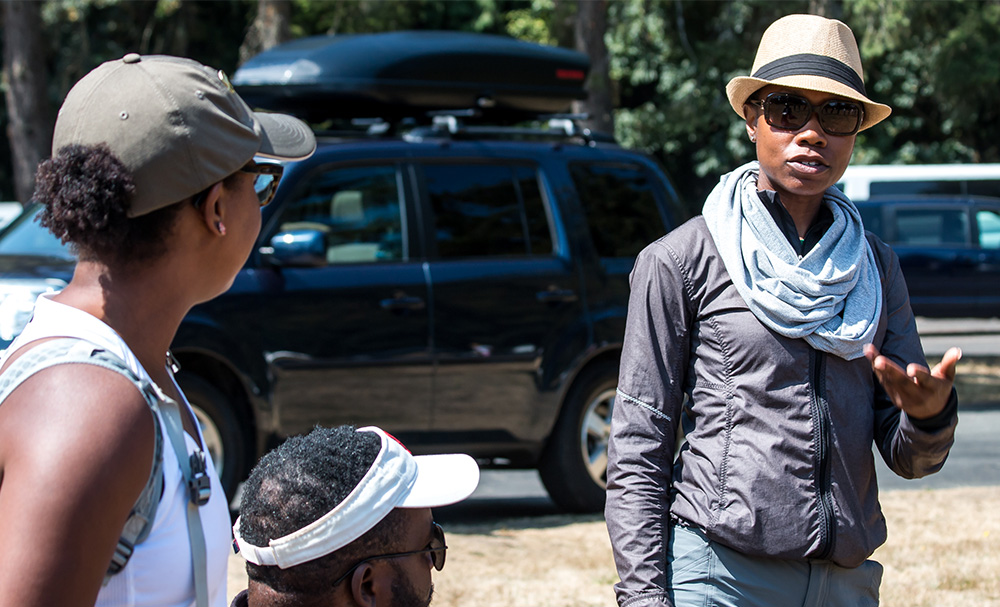
The National Parks bring the well-known backcountry, but Outdoor Afro makes sure that the nature right where you live is just as valid and healing. This was made evident on a hike in Oakland’s Redwood Regional Park during the national tensions uncovered by the Ferguson shooting. “At this point in my life it really wasn’t my time to be out protesting. We do nature,” says Mapp. “We did a call to action, rallying our partners to do healing hikes.”
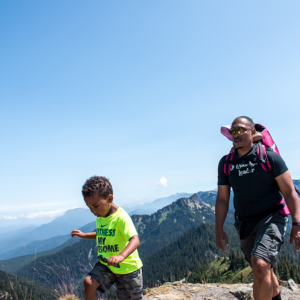 Her group’s hike took them through the 150-year old giant redwoods and ended up at a creek. Mapp realized as she knelt beside it that they had come down to the riverside to lay down her burden, just as her ancestors would when it was time to heal. Since this experience, Outdoor Afro has offered dozens of healing hikes.
Her group’s hike took them through the 150-year old giant redwoods and ended up at a creek. Mapp realized as she knelt beside it that they had come down to the riverside to lay down her burden, just as her ancestors would when it was time to heal. Since this experience, Outdoor Afro has offered dozens of healing hikes.
It surprises Mapp from time to time how Outdoor Afro has gone from just a blog conversation to something that’s changed the life of so many people. Mapp loves this result. “You never get sick of the high of sharing nature for the first time. Parents who say I’m coming back – you turned us on to nature – those are magic moments. I get to be a witness to that every single day – people getting turned onto nature. That’s what I get to do for a living. Personally I find it extreeeeeeemly rewarding and satisfying to have work that you love, people you really enjoy doing it with, and an outcome that is helping you change the world – we help people take better care of themselves, our communities, and our planet. I can’t tell you how lucky I am.”
The Outdoor Afro future looks to continue to bring the special sauce Mapp feels they have into other realms – environmental and beyond. “The more specific you are, the more universal you become. The lasting legacy I can leave is not only to create this shift in participation, but – phase two – is shifting the leadership side, seeing more people who look like us advance into decision making roles in the outdoor industry, environmental organizations and beyond.”
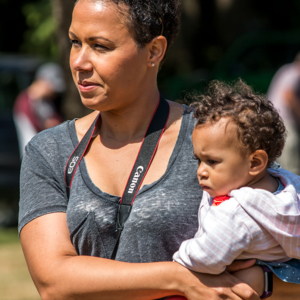 |
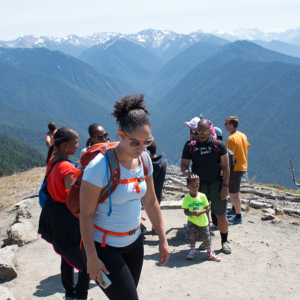 |
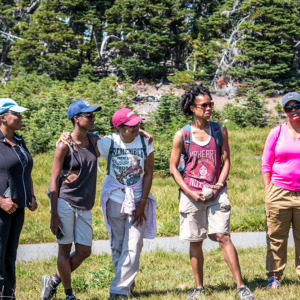 |
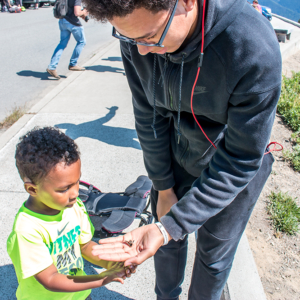 |

